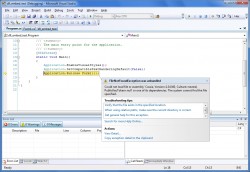If you are reading this, it’s a fair bet that you have a computer sitting in front of you, be it a PC, laptop or Mac. You use it, and so it sits; fans whirring or water pumps humming. The average user just leaves the machine alone and lets it do its thing. It’s sometimes the case where these users have been told or have read at one time or another that “computers will break if you touch the wrong button”. This is not the case. Computers are tougher than you may think, but even the toughest things in life need some TLC at one time or another. The question you want to be asking yourself is, “How can I show the care my computer deserves?”
Basically, computers are machines. They are a mass of wires, capacitors, transistors, circuit chips and motors. When combined, they go to create the machine you are currently using to view or print out this article. Like any other machine, they are prone to breakdown, overheat and wear out over time. It’s your responsibility as an owner of one (or many) of these machines to help prevent this from happening and to ensure that your computer has a long, happy life.
If there are two things that a computer fears the most, it would be heat and moisture. One or the other (and even both combined) will certainly put an end to your computer’s life quickly and efficiently. Heat can put a strain, and possibly fry, delicate circuitry and chips found everywhere inside your computer. There is a certain operating tolerance for each individual computer, but once the heat becomes too great, you may be finding yourself shopping for new parts. Moisture, on the other hand, doesn’t fry circuitry directly, rather, it causes shorts; electrical connections where there was never one intended. For example, if a line that was never meant to carry more than 1V of power gets shorted with a line caring 3.3V, the 1V line would be overloaded and would certainly cause something to give.
Plain, distilled water (good ol’ H2O and nothing else) is not conductive by itself. So, if it comes into contact with an electronic part, chances are it won’t do anything. However, depending on how clean the part is, you may or may not get shorts. Computer hardware usually has dust, dirt and metal particles clinging to the circuit boards. So, if you try washing your parts with tap (or even distilled) water, these particles will get swept up by the water, and allow it to potentially become electrically conductive. It is not a good idea to try.
What makes “regular” water more dangerous than distilled water are the sources from which it can come. Most “regular” water comes from a tap or well, and contains all sorts of minerals, such as iron, lead, and fluoride. The metallic particles in the water are what cause the electrical conductivity in the water, consequently can effectively short out your electronic components.
Never fear, however. With the proper precautions and the proper tools, the dangers of heat and moisture can be averted.




 AdamTheTech.com and respective content is Copyright 2003-2025.
AdamTheTech.com and respective content is Copyright 2003-2025.